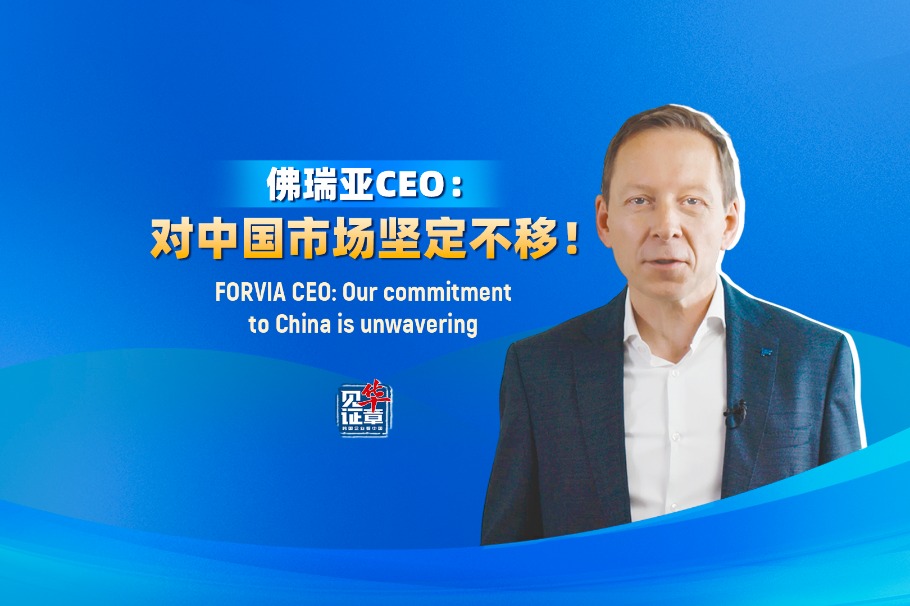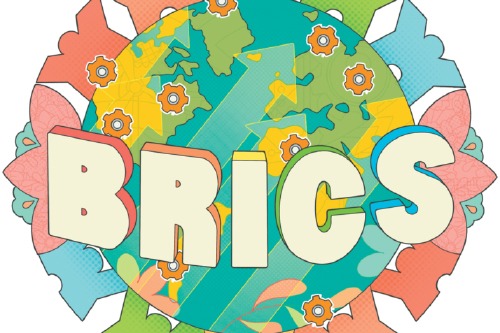Right choice in globalization


The Belt and Road Initiative not only brings new opportunities to developing countries, but also creates the greatest synergy for achieving common development
Globalization is an objective process that comes along with productivity growth and technological progress, with distinctive characteristics of increasing interconnectedness and interdependence among countries and regions. It is a historical trend that human society would evolve into an interlinked community with a shared future.
In the process of globalization, the frequent and convenient flow of goods, capital, technology and personnel between countries and regions enhances the efficiency of resource allocation on a global scale.
Economic globalization has been gathering pace after World War II, especially since the end of the Cold War. It was during this time that developed Western countries gained substantial profits from the global network of production and value chains, despite accelerated development in many developing and emerging economies.
As globalization deepens, some Western countries are seeing intensified polarization, rise of populism, as well as social and political divide. Some Western politicians and scholars blame globalization for this, but the root of the problem lies in a slew of governance deficiencies within the system.
This is particularly traceable to the lack of effective social redistribution mechanisms, as well as the monetary and fiscal intervention policies which were intended for economic stimulation and crisis response but eventually ended up in favoring the interests of the rich, resulting in an increasing concentration of wealth to a few people, further widening wealth gaps and worsening social imbalances.
At this point, if any country imposes obstacles to globalization to promote "de-globalization" or even weaponizes "de-globalization "by using decoupling and breaking supply and industry chains for the sake of suppressing and containing other countries, it will inevitably disrupt the operation and circulation of the global economy. Developed countries, which are integrated into global industry and value chains, will not stay unaffected. The efficiency of market resource allocation worldwide will take a blow, bringing down the overall welfare of the international community.
The third Belt and Road Forum for International Cooperation has just concluded in Beijing. Over the past decade, the Belt and Road Initiative has demonstrated its remarkable value in promoting global development, offering China's solution of global significance to how the world should objectively and rationally address economic globalization. In a world grappling with anti-globalization tendencies, development deficits and peace deficits, the BRI has injected new confidence and impetus.
As of now, China has signed over 200 cooperative agreements with more than 150 countries and 30 international organizations spanning five continents in the world. The BRI has been included in the outcomes of multilateral mechanisms such as the United Nations and the Asia-Pacific Economic Cooperation. Over the past decade, the BRI has attracted nearly a trillion dollars in investment, resulting in the development of more than 3,000 cooperative projects, creating 420,000 job opportunities in partner countries, and lifting nearly 40 million people out of poverty. According to World Bank estimates, by 2030, the BRI could increase global income by 0.7 percent to 2.9 percent.
The abundant achievements of the BRI are attributed to broad international participation and cooperation, driven by the strong international demand for cooperative and mutually beneficial development. It is also because the BRI is aligned with the aspirations of the international community, and actively adapts to and guides the development of economic globalization.
Reflecting on the achievements and experiences of the past decade, President Xi Jinping announced eight major steps to support BRI cooperation at the forum. These actions focus on connectivity networks, an open world economy, practical cooperation, green development, innovation, people-to-people exchanges, integrity and institutional building, laying out a blueprint for high-quality Belt and Road cooperation.
With that, it is anticipated that higher-level and deeper connectivity will inject positive energy into economic globalization, global development will advance through superior international public goods, and people's aspirations for a better life will be realized.
The way some Western countries deliberately hype up and amplify de-globalization is in essence the manifestation of unilateralism, political group confrontations and exclusive cliques. They seek to impose rules developed by specific countries on others.
In stark contrast, the BRI demonstrates an inclusive multilateralism. Advocating the principles of extensive consultation, joint contribution and shared benefits, it transcends differences in civilizations, cultures, social systems and development stages to open up new pathways for countries to engage and cooperate in a mutually beneficial manner riding on the trend of globalization. It not only brings new opportunities to developing countries, but also creates the greatest synergy for achieving common development and well-being. Therefore, the BRI boasts such robust resilience and vitality, that no distortions or smear campaigns can stop it from expanding and deepening along with the progress of time.
The world stands at a new historical crossroad today. How we understand and respond to globalization has a significant impact on global development and the sustained, steady and healthy world economic growth.
The international community, especially the world's major economies, needs to grasp the objective trend of global development, stand on the right side of history to face globalization rationally and confidently, and engage in cooperation with an open, inclusive, equal and mutually beneficial attitude. This will inject momentum into stable and sustained global economic growth.
At the same time, it is also imperative to ride on the globalization trend and proactively adapt and improve the economic and social governance mechanisms with the times, so as to align national development with global prosperity and stability, instead of falling into the trap of isolationism, self-centeredness and a zero-sum approach to international relations.
The author is a vice-chairman of the National Institute for Global Strategy at the Chinese Academy of Social Sciences. The author contributed this article to China Watch, a think tank powered by China Daily.
The views do not necessarily reflect those of China Daily.


































